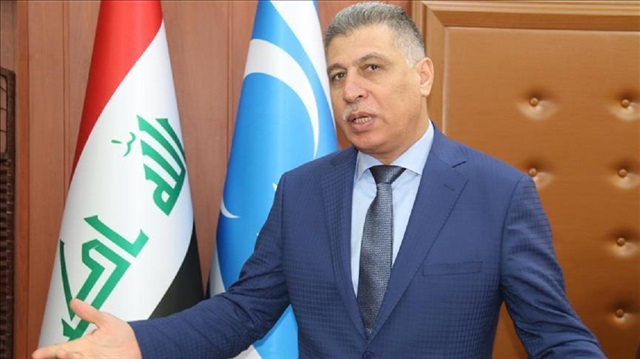
Iraqi Turkmen Front calls on US not to make any concessions to Kurdish Regional Govt at expense of region's Turkmen
An Iraqi Turkmen leader on Monday urged the U.S. not to make any concessions to northern Iraq’s Kurdish Regional Government in return for postponing next week’s planned referendum on regional independence.
Speaking to Anadolu Agency from Baghdad, Ershad Salihi, head of the Iraqi Turkmen Front (ITF), said the ITF had recently discussed the issue with U.S. Ambassador to Iraq Douglas Silliman.
“We urged the ambassador not to make any concessions to the Northern Iraqi Government [i.e., the Kurdish Regional Government] at the expense of the region’s Turkmen,” he said.
“The ambassador assured us that no such concessions had been offered,” he added.
Salihi also warned against the exclusion of Turkmen from the wider negotiation process, which, he said, would be “dangerous”.
“Territories disputed between Baghdad and Erbil [the KRG’s administrative capital] belong to us [i.e., Turkmen],” he said. “For this reason, we are confused by the notion of offering concessions to the KRG.”
The Turkmen leader also hailed Turkey’s stance on the upcoming poll, along with Ankara’s stated insistence on maintaining Iraq’s territorial integrity.
“Some observers believe Turkey is neglecting the referendum issue,” he said. “But the days ahead will prove them wrong as Turkey clarifies its position.”
“Unilateral actions by the KRG will not solve the problem,” Salihi asserted. “Turkmen, Arab and Kurdish representatives must hold a meeting -- also attended by Turkish, Iranian, U.S., French and British officials -- with a view to averting a potential crisis.”
He added: “If turmoil erupts in Kirkuk [as a result of the referendum], we will hold Baghdad responsible due to its weak position on the issue.”
“The governor [of Kirkuk] was recently dismissed and the province is now the Iraqi government’s responsibility,” Salihi said.
The Turkmen leader concluded by warning of potential conflict between Turkmen and Kurds -- and between Kurds and Arabs -- if the controversial poll is held on schedule.



